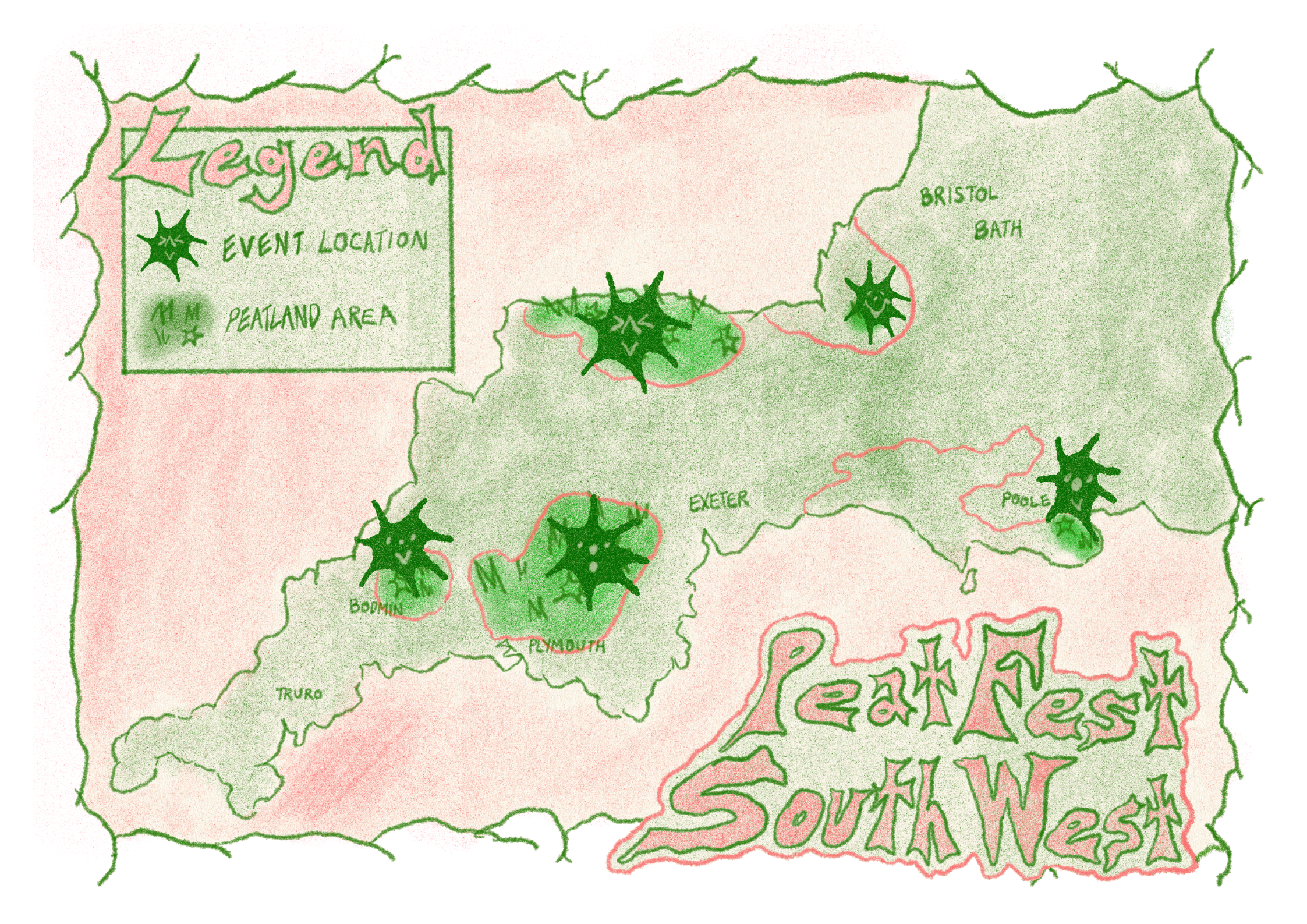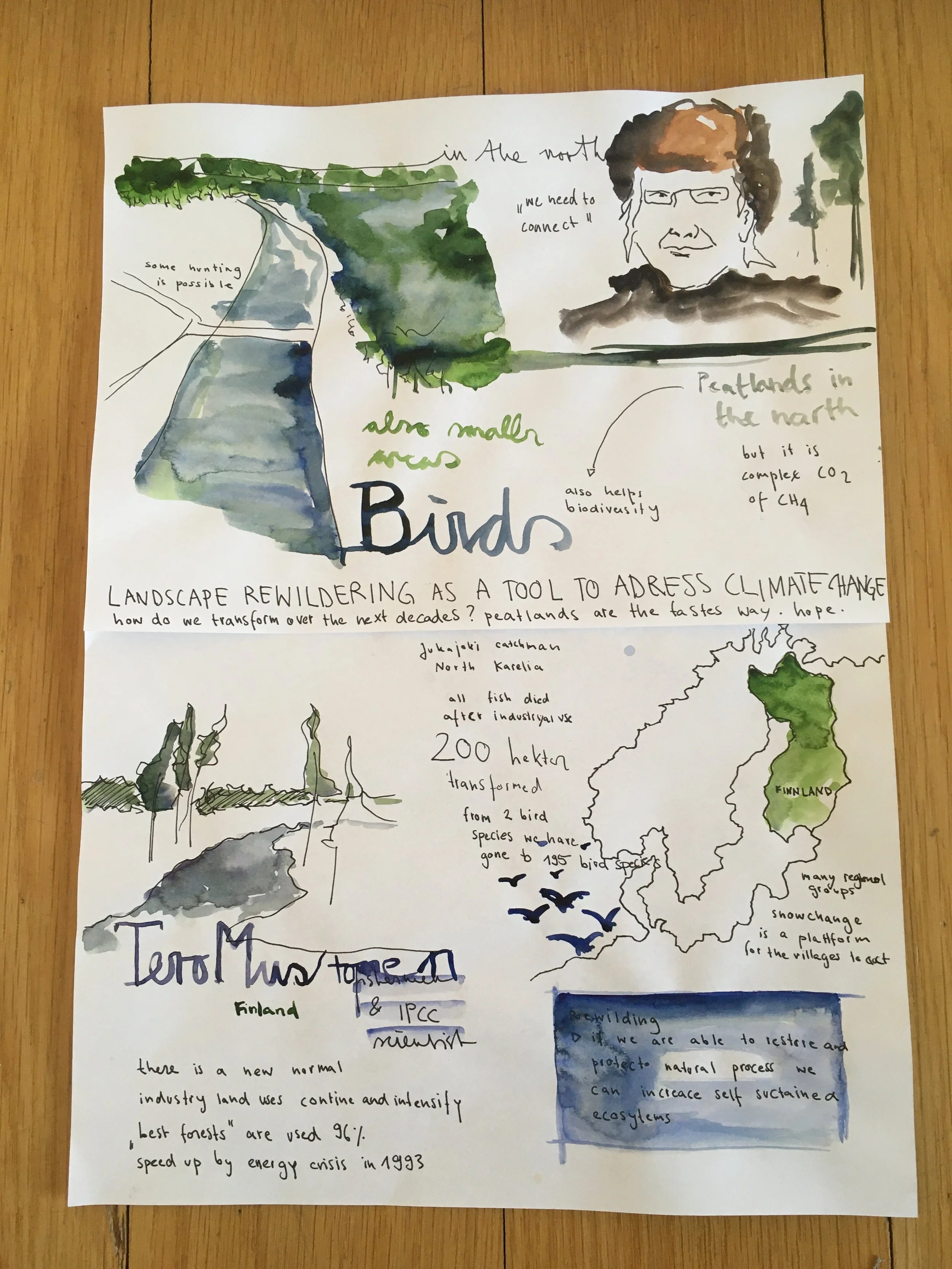
A celebration of our peatland connections
This year we are taking Peat-Fest to the South-West together with the ART and ENERGY collective!
This summer and autumn, join us across Somerset, Dorset, Dartmoor, Exmoor, and Cornwall for Peat-Fest — a region-wide celebration of our incredible peatlands!
From youth-led events and creative workshops to fen-tastic fun for all ages, come feel the strength of the peat, connect across generations, and celebrate these vital landscapes together!

Listen to the Bogcasts!
Peat-Fest South-West is working with podcast creators to record seven bogcasts at our events and workshops. We will capture the voices of people of all ages, sharing their experiences and learning.
All the bogcasts will be available to listen to free of charge and will act as a lasting legacy of our Peat-Fest South-West journey.
Wild connections - reaching hearts and minds of young people

2024
As of 2024, we are bringing Peat-Fest off the screen and out to a peatland near you. Our vision is of a network of locally-led Peat-Fest ‘stages’ and ‘tents’ dedicated to different local peatlands dotted around the UK and Europe. In this way, Peat-Fest will expand its impact by focussing on connecting people with particular peatlands in their landscape and supporting local young leaders to take action in their communities. As a Peat-Fest stage, an event can be supported by RE-PEAT in a broad and flexible capacity depending on the needs of local organisers.
2020 | 2021 | 2022
Over the course of three years, Peat-Fest was (mostly) An online festival where people from around the world came together in a playful, creative atmosphere. Peatlands easily risk being restricted to the technical realm of science or policy, creating barriers for community participation and missing out on the opportunity for transformative peatland relationships to emerge. Whether artists, scientists, politicians, community organisers, those already knee-deep in the peat and those yet to take the plunge, at Peat-Fest everyone was welcome!
Flashbacks from previous peat-fests












